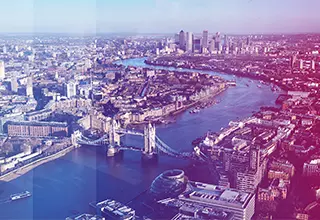Net zero refers to a state where the amount of greenhouse gases emitted is equal to the amount removed from the atmosphere. Cities are the focus of the net zero movement being major sources of greenhouse gas emissions (accounting for more than 70% of global CO2 emissions). Urban areas are the hubs of economic activity, transportation, energy consumption, and population density which all contribute to carbon footprints. Investment in net zero buildings is rising and governments, investors and financial institutions are recognising the need for sustainable growth.
The burning of coal, oil, and natural gas for electricity and heat is the largest single source of global CO2 emissions. Transitioning to renewable energy sources such as wind, solar, and hydroelectric power is essential. Improving energy efficiency and investing in energy storage technologies can assist with the transition as well as creating greener spaces, urban forests, sustainable drainage systems and efficient public transport systems.
In achieving net zero developments, it is key to recognise and overcome challenges faced by developers and investors such as high initial capital costs, research and development costs, regulatory hurdles, financing challenges and lack of community engagement. Such challenges will require additional financial incentives to offset initial capital costs, collaboration between developers and technology providers, simplifying guidelines and innovative financing models, continuous research and development and incentives for sustainable practices.
Cities such as Copenhagen, Oslo and Vancouver are leading the way to achieving net zero with efficient public transport systems, investment in renewable energy and implementing strict energy efficiency standards for buildings.
The transition to net zero buildings and cities can also be seen as an economic opportunity as well as an environmental essential. By addressing the cost and risk challenges, fostering compliance and standardisation, and adopting a collaborative, adaptive approach, the real estate industry can lead the way in achieving a sustainable, healthier and prosperous future for all.















